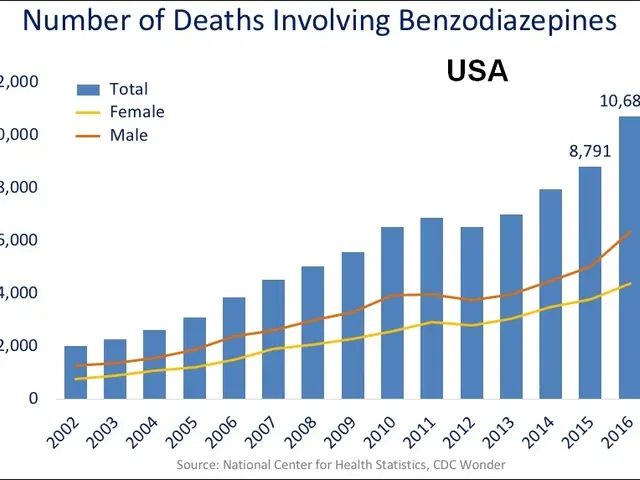Essential Tech Terms to Enhance Your Mental Well-being
In the digital age, technology has become an integral part of our daily lives. From work to entertainment, screens have become our constant companions. However, excessive screen time can have detrimental effects on mental health, with award-winning tech journalist Kurt "CyberGuy" Knutsson shedding light on this issue.
One of the concerns that arise in a screen-heavy world is the issue of algorithmic bias. Algorithmic bias occurs when algorithms reflect human biases, leading to skewed results in various areas, including job recommendations, facial recognition, and social media feeds. This can reinforce harmful stereotypes, skew what you see online, and limit exposure to diverse perspectives. To combat this, being mindful of algorithmic bias involves being curious about the content in your feed, following a range of voices, diversifying your digital space, and questioning default settings.
Another issue that arises is doomscrolling, a term that serves as a reminder to use technology with more intention and care. Doomscrolling negatively impacts mental health by increasing anxiety, disrupting sleep, reducing social interaction, and decreasing physical activity. Constant exposure to distressing news activates the brain’s threat-detection system, triggering stress responses like increased cortisol and norepinephrine levels, which impair mood, focus, and overall well-being. Doomscrolling late at night can cause sleep procrastination, worsening next-day cognitive function and mood.
To stop or limit doomscrolling, experts recommend practical strategies. Be aware of social media's addictive design and consciously decide to disengage. Limit phone use to certain areas of your home to reduce temptation. Put your phone away during meals, social visits, or set specific "screen-free" times, such as turning the phone off at night. Replace 30 minutes of scrolling with alternative activities like exercise or spending time outdoors, which support mental health. Make plans with friends for phone-free time to encourage social connection and accountability. Recognize when doomscrolling triggers stress and take steps to calm the nervous system, such as mindfulness or breaks from news consumption.
A digital detox, or intentionally unplugging from technology for a certain period, can also help reduce stress, improve focus, and boost mood. Understanding how certain tech habits and systems affect mental health is a great place to start in reclaiming peace of mind.
Setting app limits, using focus modes, or checking weekly screen time summaries can help reduce screen time. Screen time on mobile devices can be tracked and broken down by app, making it easier to identify patterns and make changes.
In conclusion, taking control of screen time is crucial for maintaining mental health in a digital world. By being mindful of algorithmic bias, limiting doomscrolling, and taking regular digital detoxes, we can protect and restore our mental well-being.
- In the realm of health-and-wellness, excessive screen time, as highlighted by tech journalist Kurt "CyberGuy" Knutsson, can lead to detrimental effects on mental health, especially the practice of doomscrolling that increases anxiety and disrupts sleep, thereby negatively impacting focus and overall well-being.
- The integration of technology in various fields, including social media, can unknowingly perpetuate algorithmic bias, potentially reinforcing harmful stereotypes and limiting exposure to diverse perspectives. To counteract this, one must choose to be mindful, being curious about content, diversifying digital spaces, and questioning default settings.
- While technology can have profound impacts on our lives, it is crucial to recognize and address concerns such as algorithmic bias and doomscrolling to ensure mental health remains a priority, particularly in a digital age where it can be easy to lose sight of the important value of natural health-and-wellness pursuits like exercise and spending time outdoors.




